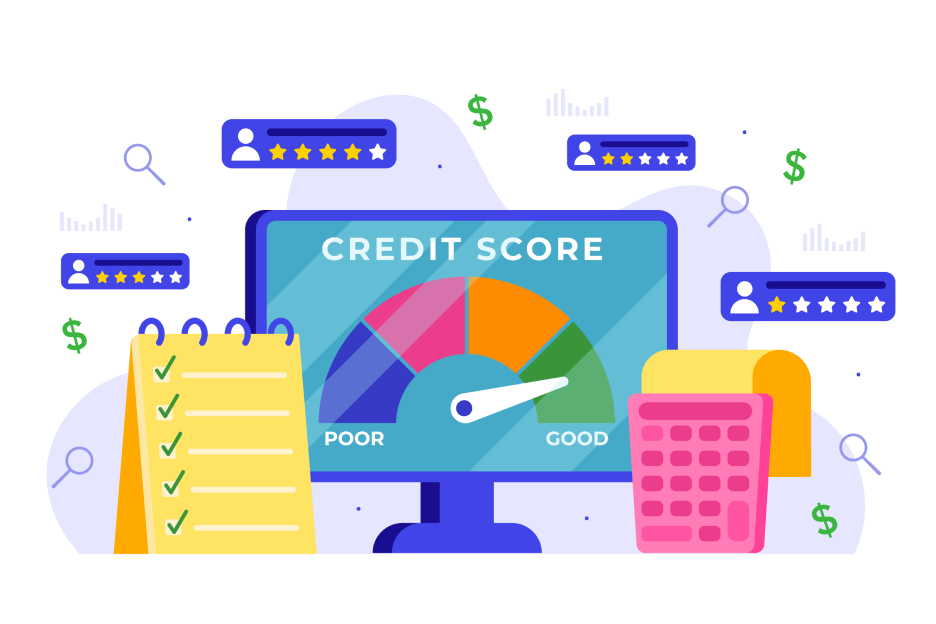

The Ultimate Expert Handbook to Improve Your CIBIL Score in India
In India, your creditworthiness matters the most to your financial well-being. If you submit an application for a home loan, a personal loan, or a credit card, your CIBIL score can literally make or break your application. The 300 to 900 CIBIL score is a brief overview of your credit behavior and financial accountability. Any score above 750 is considered healthy, which will make you qualify for good interest rates and higher loan amounts.
No rocket science is required to boost your CIBIL score. Instead, it demands a knowledge of how the system works, sound financial behavior, and steering clear of common pitfalls. In this exhaustive guide, we deal with in-depth, concrete, and practical ways to enhance your CIBIL score, glean from mistakes that individuals normally make, and recommend best practices to have a robust credit record in the long term.
The Essentials: How Is the CIBIL Score Determined?
A clear knowledge of the components that constitute your CIBIL score is crucial to successful improvement. The key components and their approximate contribution to the determination of the score are shown below:
Payment History (35%)
Your history of payments for loans, credit cards, and other credit products plays the largest role.
Credit Utilization Ratio (30%)
The ratio of your total used credit to available credit. A lower ratio is better.
Credit Age and Mix (15%)
Average age of your accounts and ratio of secured (house loans, car loans) and unsecured credit (credit cards, personal loans).
Credit Inquiries (10%)
Every hard inquiry (credit check by a lender when you seek a loan) impacts your score slightly. Too many in a short time can lower it.
Outstanding Debt (10%)
The total outstanding value of your current credit products, i.e., loans and credit card outstanding.
Having an understanding of these factors helps you concentrate on initiatives with the largest impact.
Realistic, Step-by-Step Steps to Improve Your CIBIL Score
Pay Early: Paying on time is essential. It’s the key to maintaining good credit health.
Why Payment History Matters:
A timely payment history can demonstrate to lenders that you are creditworthy, reducing perceived credit risk.
Action Plan in Detail
Automate Payments: Set standing orders on EMIs and credit card dues. Most banks and fintech platforms offer automatic payments to avoid missing deadlines.
Use Reminders: Remind yourself days in advance using phone apps like Money Buddha or phone reminders about the payment due dates.
Full vs Minimum Payments: Instead of making minimum payments, attempt to pay the full amount due, especially on credit cards, to avoid interest charges and reduce the outstanding balance.
Real-Life Example:
Bangalore-based software engineer Mr. Ramesh made automatic payments of credit cards and loans. Subsequently, it increased his credit score by creating a payment pattern from 680 to 760 in a period of 12 months.
Maintain Low Credit Utilization: Target Below 30%
Why It Matters:
High credit utilization implies financial pressure. The optimal utilization rate is below 30% of your credit limit available.
How to Accomplish This:
Monitor Monthly: Use the CIBIL website or financial apps to monitor your credit usage.
Request Higher Limits: If your income boosts or your payment record is sound, ask your bank to raise your credit card limit. This increases your availability of credit without adding debt.
Strategic Spending: Rather than using up your card, distribute your spending among multiple cards or settle accounts before they’re due.
Example Calculation:
If your total credit available is ₹2,00,000, have a usage of less than ₹60,000. This should be the balance when the bank informs CIBIL (typically at the end of the billing period).
Maintain a Balanced Credit Mix
Why It Matters:
Having a combination of secured and unsecured credit products shows your ability to manage different financial obligations.
Actionable Steps:
Diversify Credit Products: If you only have credit cards, include a small personal loan or home loan.
Avoid Multiple Personal Loans: Having multiple unsecured loans indicates a financial crisis. Instead, use a mix of secured and unsecured credit.
Best Practice Example:
Ms. Priya, a Delhi executive in marketing, availed herself of an extra home loan to the credit card portfolio she already had, which reflected a better credit mix and improved her CIBIL score from 710 to 770 in 18 months.
Limit Hard Inquiries: Strategically Loan Applications Wisely
Why It Matters:
Several hard inquiries reflect high risk and lower your score.
Smart Approach:
Pre-Approved Offers: Check pre-approved offers by banks and NBFCs in advance, since these do not entail hard checks.
Spacing Applications: Leave at least 3–6 months between taking a few credit products.
Monitor Your Credit Report: Check for unauthorized inquiries and report to CIBIL at once.
Common Pitfall:
Taking multiple loans in quick succession leads to multiple hard inquiries and hurts your score in the short term.
Review and Fix Errors in Your Credit Report on a Regular Basis
Why It Matters:
Incorrect reporting could negatively impact your score unfairly.
Actionable Steps:
Obtain your free annual CIBIL report.
Check for erroneous loan statuses, duplicate entries, or incorrect personal details.
Bring disputes on the CIBIL website with supporting documents (e.g., bank statements or NOC from a lender).
Real-World Scenario:
Mr. Amit of Pune discovered a default entry against him on his report of a loan he had settled several years ago. Upon lodging a dispute with evidence of payment, the error was deleted within 30 days, and his score was improved by 30 points.
Leave Older Credit Accounts Open
Why It Matters:
Credit age contributes to your score.
Closing old accounts reduces your average credit age
Best Practice
Keep one or multiple old credit cards open, even if you don’t use them much.
Use it for small monthly expenses to keep it open.
Typical Mistake:
People typically close old unused cards, thinking it makes money cleaner, but it lowers average account age and damages your score.
Opt For EMI Payments Over Bullet Repayments
Why It Matters:
Monthly repayments show greater financial control than one big payment.
Choose EMI-based purchases over paying the full amount upfront, though they are easily affordable.
Prioritize loans with recurring EMIs for maintaining a steady repayment record.
Common Traps and Avoidance
Defaults or Missed Payments
Schedule automatic payments or reminders.
Prioritize the most urgent loans (e.g., home loan EMIs over credit card payments).
High Credit Utilization
Do not spend near your limit.
Pay balances before the statement date.
Frequent Loan Applications
Apply only when unavoidable.
Check eligibility and pre-approved offers before applying.
Ignoring the Credit Report
Acquire it regularly.
Dispute errors on time.
Dependence on Unsecured Credit
Replace with secured loans like home loans or car loans.
Best Practices for Credit Health
Establish Credit at an Early Age
Teenagers should have a secured credit card to start building a history.
Take small personal loans and pay on time to establish a track record.
Become an Authorized User
Request to be added as an authorized user on a well-used credit card of a family member.
Their good payment history is good for your credit score.
Take Small Loans and Repay on Time
Small personal loans borrowed on EMI reflect credit discipline.
Take Loan Transfers or Refinancing
Transfer interest-choked loans to lower-interest loans when the facility is available.
Don’t do it too frequently, as each transfer is treated as a hard inquiry.
How Long Does It Take to Improve Your CIBIL Score?
Small repairs and timely payments reflect in 1–3 months.
Establishing a healthy credit mix and reducing utilization generally takes 6–12 months.
Large score improvements require 12–24 months of good behavior.
The Role of CIBIL Score in Financial Products
Home Loans
A good CIBIL score equates to low interest rates and enhanced approval prospects.
Personal Loans
A good score guarantees rejection avoidance and superior terms.
Credit Cards
Higher scores equal higher limits, superior cards, and better reward schemes.
The Psychological Side: Cultivating Discipline
It’s not just about numbers – improving your CIBIL score requires cultivating a disciplined financial mindset.
Think long term.
Avoid instant gratification in lending.
Budget your expenses every month to accommodate debt repayment.
Case Studies: Success Stories in Real Life
Case Study 1: The Young Professional
Ankit, a 27-year-old Mumbai resident, increased his CIBIL score from 650 to 780 in 18 months by means of automated payments, less than 20% utilization, and diversification of credit products.
Case Study 2: The Home Buyer
Sunita, a homemaker and resident of Delhi, focused on error correction in her report and avoiding new questions, and hence she was able to get a home loan at the rate of 7.5%.
Conclusion
It takes sustained effort, smart borrowing, and timely repayment to raise your CIBIL score. Never take shortcuts and always follow sound credit behaviour. Whether it is purchasing a house, funding education for your child, or getting a credit card, a healthy CIBIL score makes it all easy and provides improved terms.
Through the implementation of these strategies set forth in this guide, you are able to reshape your financial situation and reap the rewards of a sound credit record.









Leave a Reply